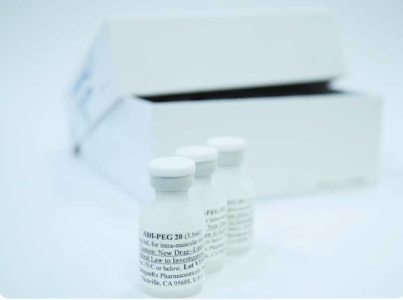Scientists welcome the ‘truly wonderful’ drug for hard-to-treat cancer
By
Seia Ibanez
- Replies 4
In medical science, breakthroughs are often incremental, but every so often, a discovery comes along that has the potential to revolutionise treatment.
Such is the case with a new drug that's offering hope to those battling mesothelioma, a notoriously aggressive and hard-to-treat form of cancer.
This development is being hailed as 'truly wonderful' by scientists, and it's easy to see why.
Mesothelioma is a type of cancer that develops in the lining that covers the surface of some of the body's organs, primarily the lungs.
It's most commonly linked to asbestos exposure, a material once widely used in construction and manufacturing. And recently, a major investigation discovered asbestos in mulch at 200 sites across Sydney.
Despite asbestos being largely phased out in many countries, the legacy of its use continues to impact thousands of people each year.
In the United Kingdom, there are about 2,700 new cases of mesothelioma each year, with almost 2,400 deaths. The prognosis for those diagnosed is grim, with just 2 per cent expected to survive for ten years beyond their diagnosis.
According to Cancer Australia, in 2022, an estimated 904 fresh instances of mesothelioma are projected to emerge in Australia. The risk of being diagnosed with mesothelioma by the age of 85 is approximately 1 in 319 people.
Enter ADI-PEG20 (pegargiminase), a new drug offering hope in this bleak landscape.
The drug, the first of its kind for mesothelioma in 20 years, works by cutting off the tumour's food supply.
This innovative approach is the result of two decades of dedicated work by Professor Peter Szlosarek at Queen Mary, who discovered that mesothelioma cells lack a protein called ASS1. This protein enables cells to manufacture the amino acid arginine, which is crucial for cell growth and division.
Building on this discovery, ADI-PEG20 was developed to deplete arginine levels in the bloodstream.
For tumour cells that cannot manufacture their arginine due to a missing enzyme, their growth is thwarted.

The ATOMIC-meso trial, sponsored by Polaris Pharmaceuticals, was conducted at 43 centres across five countries between 2017 and 2021. It involved 249 patients with pleural mesothelioma.
Half were given injections of ADI-PEG20 alongside chemotherapy, while the other half received a placebo and chemotherapy.
The results showed that those who received pegargiminase and chemotherapy survived an average of 9.3 months, compared to 7.7 months for those who had the placebo and chemotherapy.
The average 'progression-free survival' was 6.2 months with pegargiminase-chemotherapy compared with 5.6 months among patients who had the placebo and chemotherapy.
‘In this pivotal, randomised, placebo-controlled, phase 3 trial in 249 patients with pleural mesothelioma, pegargiminase-chemotherapy increased significantly the median overall survival by 1.6 months and quadrupled the survival at 36 months compared to placebo-chemotherapy,' the authors wrote.
‘Pegargiminase-based chemotherapy was well tolerated with no new safety signals.'
In observing all patients receive chemotherapy every three weeks for up to six cycles, Szlosarek said, ‘It's truly wonderful to see the research into the arginine starvation of cancer cells come to fruition.’
'This discovery is something I have been driving from its earliest stages in the lab, with a new treatment, ADI-PEG20, now improving patient lives affected by mesothelioma.'
According to Dr Tayyaba Jiwani, Science Engagement Manager at Cancer Research UK and a sponsor of the early stages of the research, ‘This study shows the power of discovery research which allows us to dig deep into the biology of mesothelioma to uncover vulnerabilities that we can now target with ADI-PEG20.'
‘The UK mesothelioma community, including doctors, nurses, patients and families living with mesothelioma, are extremely proud of ATOMiC,’ said Liz Darlison, Chief Executive of Mesothelioma UK.
'It offers another much-needed treatment option and, above all, hope to those living with mesothelioma.’
'We look forward to seeing this treatment become available as a standard option to all patients in the future. Well done to all concerned, and thank you to everyone who took part.'
In another story, researchers found an unexpected ally in the war against cancer.
It comes from an infamous party drug used at parties for its mind-altering effects, which is illegal in many parts of the world, including Australia. You can read more about it here.

Have you or a loved one been affected by mesothelioma? What do you think about this breakthrough? Share your experiences and thoughts in the comments below.
Such is the case with a new drug that's offering hope to those battling mesothelioma, a notoriously aggressive and hard-to-treat form of cancer.
This development is being hailed as 'truly wonderful' by scientists, and it's easy to see why.
Mesothelioma is a type of cancer that develops in the lining that covers the surface of some of the body's organs, primarily the lungs.
It's most commonly linked to asbestos exposure, a material once widely used in construction and manufacturing. And recently, a major investigation discovered asbestos in mulch at 200 sites across Sydney.
Despite asbestos being largely phased out in many countries, the legacy of its use continues to impact thousands of people each year.
In the United Kingdom, there are about 2,700 new cases of mesothelioma each year, with almost 2,400 deaths. The prognosis for those diagnosed is grim, with just 2 per cent expected to survive for ten years beyond their diagnosis.
According to Cancer Australia, in 2022, an estimated 904 fresh instances of mesothelioma are projected to emerge in Australia. The risk of being diagnosed with mesothelioma by the age of 85 is approximately 1 in 319 people.
Enter ADI-PEG20 (pegargiminase), a new drug offering hope in this bleak landscape.
The drug, the first of its kind for mesothelioma in 20 years, works by cutting off the tumour's food supply.
This innovative approach is the result of two decades of dedicated work by Professor Peter Szlosarek at Queen Mary, who discovered that mesothelioma cells lack a protein called ASS1. This protein enables cells to manufacture the amino acid arginine, which is crucial for cell growth and division.
Building on this discovery, ADI-PEG20 was developed to deplete arginine levels in the bloodstream.
For tumour cells that cannot manufacture their arginine due to a missing enzyme, their growth is thwarted.

ADI-PEG20 is a new development that could cure mesothelioma. Credit: Polaris Pharma Official Website
The ATOMIC-meso trial, sponsored by Polaris Pharmaceuticals, was conducted at 43 centres across five countries between 2017 and 2021. It involved 249 patients with pleural mesothelioma.
Half were given injections of ADI-PEG20 alongside chemotherapy, while the other half received a placebo and chemotherapy.
The results showed that those who received pegargiminase and chemotherapy survived an average of 9.3 months, compared to 7.7 months for those who had the placebo and chemotherapy.
The average 'progression-free survival' was 6.2 months with pegargiminase-chemotherapy compared with 5.6 months among patients who had the placebo and chemotherapy.
‘In this pivotal, randomised, placebo-controlled, phase 3 trial in 249 patients with pleural mesothelioma, pegargiminase-chemotherapy increased significantly the median overall survival by 1.6 months and quadrupled the survival at 36 months compared to placebo-chemotherapy,' the authors wrote.
‘Pegargiminase-based chemotherapy was well tolerated with no new safety signals.'
In observing all patients receive chemotherapy every three weeks for up to six cycles, Szlosarek said, ‘It's truly wonderful to see the research into the arginine starvation of cancer cells come to fruition.’
'This discovery is something I have been driving from its earliest stages in the lab, with a new treatment, ADI-PEG20, now improving patient lives affected by mesothelioma.'
According to Dr Tayyaba Jiwani, Science Engagement Manager at Cancer Research UK and a sponsor of the early stages of the research, ‘This study shows the power of discovery research which allows us to dig deep into the biology of mesothelioma to uncover vulnerabilities that we can now target with ADI-PEG20.'
‘The UK mesothelioma community, including doctors, nurses, patients and families living with mesothelioma, are extremely proud of ATOMiC,’ said Liz Darlison, Chief Executive of Mesothelioma UK.
'It offers another much-needed treatment option and, above all, hope to those living with mesothelioma.’
'We look forward to seeing this treatment become available as a standard option to all patients in the future. Well done to all concerned, and thank you to everyone who took part.'
In another story, researchers found an unexpected ally in the war against cancer.
It comes from an infamous party drug used at parties for its mind-altering effects, which is illegal in many parts of the world, including Australia. You can read more about it here.
Key Takeaways
- Researchers have made a breakthrough with a new drug, pegargiminase, which significantly improves survival rates for mesothelioma, a form of cancer linked to asbestos exposure.
- The ATOMIC-meso trial led by Professor Peter Szlosarek at Queen Mary revealed that the drug, which deprives tumours of their food supply, quadrupled the three-year survival rate when combined with chemotherapy.
- The trial involved 249 patients across 43 centres in five countries, with average patient survival increasing to 9.3 months with pegargiminase, compared to 7.7 months with a placebo.
- The new treatment, resulting from two decades of research, has been welcomed by Cancer Research UK, with hopes that it will become a standard treatment option for mesothelioma in the future.
Last edited:








